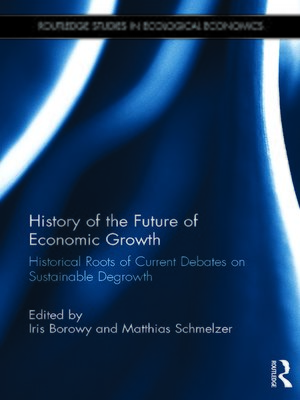History of the Future of Economic Growth
ebook ∣ Historical Roots of Current Debates on Sustainable Degrowth · Routledge Studies in Ecological Economics
By Iris Borowy

Sign up to save your library
With an OverDrive account, you can save your favorite libraries for at-a-glance information about availability. Find out more about OverDrive accounts.
Find this title in Libby, the library reading app by OverDrive.



Search for a digital library with this title
Title found at these libraries:
| Library Name | Distance |
|---|---|
| Loading... |
The future of economic growth is one of the decisive questions of the twenty-first century. Alarmed by declining growth rates in industrialized countries, climate change, and rising socio-economic inequalities, among other challenges, more and more people demand to look for alternatives beyond growth. However, so far these current debates about sustainability, post-growth or degrowth lack a thorough historical perspective.
This edited volume brings together original contributions on different aspects of the history of economic growth as a central and near-ubiquitous tenet of developmental strategies. The book addresses the origins and evolution of the growth paradigm from the seventeenth century up to the present day and also looks at sustainable development, sustainable growth, and degrowth as examples of alternative developmental models. By focusing on the mixed legacy of growth, both as a major source of expanded life expectancies and increased comfort, and as a destructive force harming personal livelihoods and threatening entire societies in the future, the editors seek to provide historical depth to the ongoing discussion on suitable principles of present and future global development.
History of the Future of Economic Growth is aimed at students and academics in environmental, social, economic and international history, political science, environmental studies, and economics, as well as those interested in ongoing discussions about growth, sustainable development, degrowth, and, more generally, the future.







